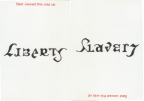I had the great honour in September to present a paper on the radical republicanism of the poet Percy Bysshe Shelley and how it influences my political activity. I reproduce it here.
Reclaiming Percy Bysshe Shelley’s Radical Republicanism
1. Introduction
A number of works have analysed Percy Bysshe Shelley’s (PBS) poetry from a proto-left viewpoint (e.g. Paul Foot 1981*). This paper, however, considers the issue of Shelley’s radical political philosophy with specific attention to Republican principles.
Clearly, PBS could have known nothing about socialism or communism. So any analysis based solely on these principles risks misrepresenting fundamental points of his ideology. Viewing his work within a contemporary setting not only brings his political concepts on liberty into focus but reveals a surprisingly strong relevance to current concepts of republicanism. Over the past 40 years researchers such as Quentin Skinner have revealed aspects of republican thinking lost to us for two centuries whilst others have set about the task of evolving them for the 21st Century. When PBS was at the height of his powers liberalism was starting this process of marginalizing republicanism but Thomas Paine and William Godwin, amongst others would have exerted a strong influence on Shelley.
To illustrate the points, the paper focusses on two of Shelley’s poems where the republican vision is most highly developed, Mask of Anarchy and Poetical Essay on the Existing State of Things along with the sonnet England in 1819.
2. What is Republicanism?
In popular conception Republicanism has become synonymous with anti-Monarchism. But its history and development is vastly richer and it is more accurate to characterise it as ‘anti-Slavery’. The seeds date back over two and a half thousand years when the Roman Republic was established following the defeat of the ruling Tarquin Kings in 509BCE. Indeed our modern word is derived from the Latin res publica meaning ‘public matter or affair’. The early Roman republic bears little similarity to our current idea of Republicanism but we, along with PBS, owe a great debt of gratitude to that great statesman and lawyer Marcus Tullius Cicero (106BCE-43BCE) for codifying the fundamental tenets. Predictably for a society heavily dependent on slavery it was important to define just what a constituted a free person. It is this formulation as an individual free from domination which provides a golden thread right from that era, through Shelley’s time to the present day.
The goal of early Republicanism was to establish the political; system which most effectively liberated citizens to protect their city-state. But around four hundred years ago a significant mutation occurred and republicans began to reformulate the ideas of non-domination explicitly in terms of citizen rights.
So how can we characterise modern republicanism? Professor Stuart White of Jesus College Oxford suggests four overarching principles:
1. Individual freedom defined as not living at the mercy or largesse of another (the famous nondomination doctrine).
2. An economic and social environment promoting and serving the Common Good.
3. Popular sovereignty, appropriately inclusive of all citizens and excluding oligarchic rule.
4, Inclusive and widespread civic participation by citizens.
I shall show how each of these principles are present in the works by PBS under consideration. These ideas were radical in the early eighteenth century and, I argue, are still radical today.
3. Freedom as Non-Domination; Core Republicanism
At the heart of republican philosophy lies a definition of freedom as non-domination or the absence of the condition of slavery. Non-domination is a far stricter doctrine than non-interference which forms the basis of liberal and libertarian ideology. Non-domination asserts that not only must an individual or group be free from arbitrary influence by another, but further, there must be no possibility of such influence. This guards against the benevolent master condition who allows his slaves latitude and possibly wealth, but could change his attitude at any moment. It is in these terms of slavery which PBS grounded his idea of liberty. So in the Mask of Anarchy we find:
What is Freedom? Ye can tell
That which Slavery is too well,
For its very name has grown
To an echo of your own.
The late Paul Foot in The Poetry of Protest asserted that slavery is economic exploitation. For a republican this is a narrow and incomplete view which fails to take into account the myriad other ways which slavery can occur, for example gender oppression which concerned PBS. Again in Mask of Anarchy we find:
‘Tis to be a slave in soul
And to hold no strong control
Over your own wills, but be
All that others make of ye.
4, The economic and social environment
But republicans do agree with socialists that sufficient economic resources are essential to individual freedom. At first, however, republicans took a hardline stance. Cicero, for example, says this in de officiis:
..vulgar are the means of livelihood of all hired workmen whom we pay for mere manual labour, not for artistic skill; for in their case the very wage they receive is a pledge of their slavery.
But as the Industrial Revolution evolved along with the concept of the Free Contract, wage-earning per se was not viewed as slavery in itself but rather the lack of agency to contest the conditions of the contract. This is what concerned PBS and economic hardship is a frequent theme in the works under consideration.
Continue reading “My Paper to the Shelley 2017 Conference on Reclaiming His Radical Republicanism”


